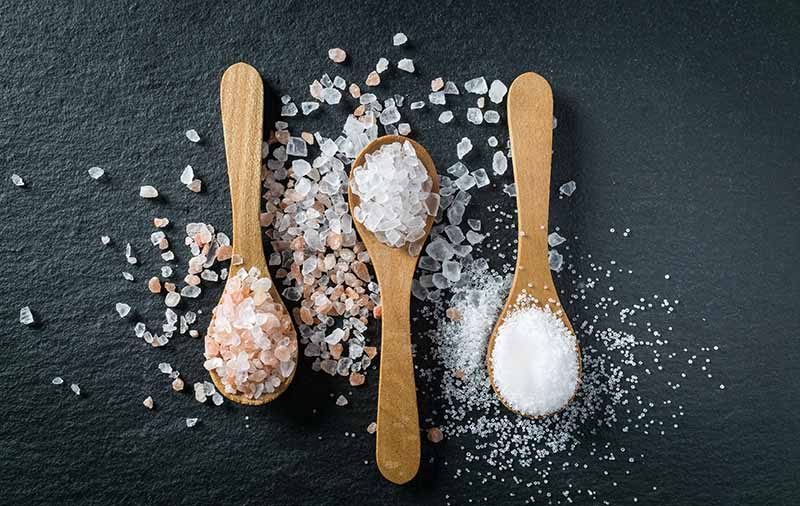Your daily sodium intake can have lasting implications for your health. What is often overlooked in our daily diets is the need to be aware of what foods contain high levels of salt, and why it’s important to balance the amount we consume each day. Sodium is an essential mineral that plays a key role in maintaining fluid balance, regulating nerve and muscle function, as well as influencing blood pressure regulation. This blog post will explore current dietary guidelines, which highlight how excess sodium intake may impact cardiovascular health, and recommend simple ways to reduce the amount of salt consumed with a healthy diet.
The benefits of watching sodium intake
Maintaining a healthy diet is essential for overall well-being, and one crucial aspect that requires attention is sodium intake. When consumed in moderation, it plays a vital role in regulating fluid balance, nerve function, and muscle contraction. However, excessive intake can lead to high blood pressure, heart disease, and stroke, among other health issues. Hence, monitoring intake is of utmost importance. Limiting processed foods and eating more fresh fruits and vegetables can enable us to control our daily sodium consumption. Adopting a low-sodium diet can offer numerous health benefits, including reducing the risk of chronic diseases, improving heart health, and promoting weight loss. Therefore, being mindful of our intake is a crucial step we can take toward a healthier lifestyle.
Common foods high in sodium

Sodium is a vital nutrient that our bodies need to function properly. However, consuming too much can have negative effects on our health, including high blood pressure and increased risk of heart disease. It’s important to be aware of common foods that are high in sodium and to make sure we are consuming them in moderation. Some examples include processed foods like canned soups, deli meats, and frozen meals. Even seemingly healthy options like salad dressings and vegetable juices can be surprisingly high in sodium. Paying attention to nutrition labels and choosing lower sodium options can help us maintain a balanced diet and support our overall health.
Alternatives to eating high-sodium foods
In today’s fast-paced world, grabbing a quick bite to eat is often a go-to choice for many people. Unfortunately, many of these quick and convenient food options often come packed with high levels of sodium. Yet, there are other alternatives available for individuals who are looking to maintain a healthy diet. These options include incorporating fresh fruits and vegetables, whole grains, and lean protein sources into meals, using herbs and spices to add flavor, and choosing low-sodium options when grocery shopping. By making these simple swaps, individuals can significantly reduce their intake while still enjoying flavorful and satisfying meals.
Tips to reduce your consumption of sodium
Many of us consume more sodium than we need, which can negatively impact our health. High levels in the diet can contribute to high blood pressure, stroke, and other health issues. However, reducing our sodium intake doesn’t have to be difficult. One tip is to choose fresh, whole foods as often as possible, as these typically have lower levels of sodium. Additionally, experimenting with herbs and spices can add flavor to food without the need for excess salt. Reading nutrition labels and choosing lower-sodium options can also help. By making small changes to our diets, we can reduce our sodium intake and improve our overall health.
How not getting enough sodium affects your health
Sodium is a crucial nutrient that helps regulate the balance of fluids in your body. While it’s important to watch your intake and not consume too much, the opposite can also be detrimental. Not getting enough sodium can actually have negative effects on your health. Without enough, your body might not be able to maintain proper blood pressure or effectively transmit nerve impulses. You might also experience muscle cramps, nausea, and headaches. It’s important to strike a balance and make sure you’re getting enough sodium while also avoiding excessive intake. Speak with a healthcare professional to determine the right amount for your individual needs.
Signs you’re consuming too much sodium
Consuming sodium plays an important role in maintaining the balance of fluids in the body, but consuming too much can put your health at risk. Knowing the signs of excessive sodium consumption is crucial to protecting your health. Some of the signs to look out for include bloating, high blood pressure, and increased thirst. You may also experience headaches, fatigue, and shortness of breath. Consuming too much can lead to serious health problems such as heart disease, stroke, and kidney disease. Therefore, it’s important to monitor your sodium intake and make necessary changes to your diet to keep your levels in check.
Making mindful health decisions with Fruit IQ
At Fruit IQ, we believe in creating snacks that will satisfy you while leaving you feeling guilt-free. With just 70 calories and no added sugars, our iconic fruit rolls make for the perfect accompaniment to any diet. Simply pick up one of our Fruit IQ rolls and get moving! To learn more, please visit our website and check out the number of flavors at our shop today!
